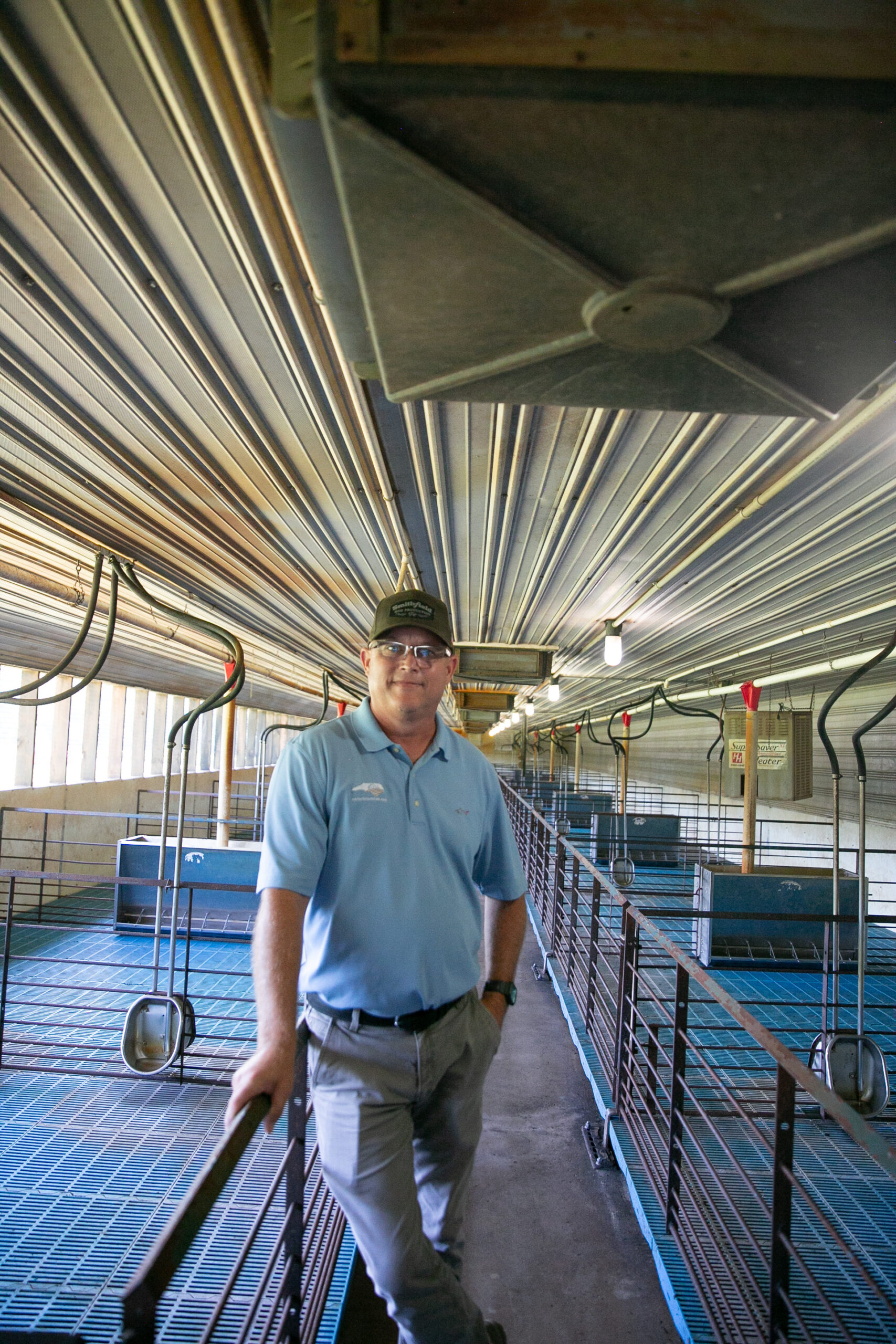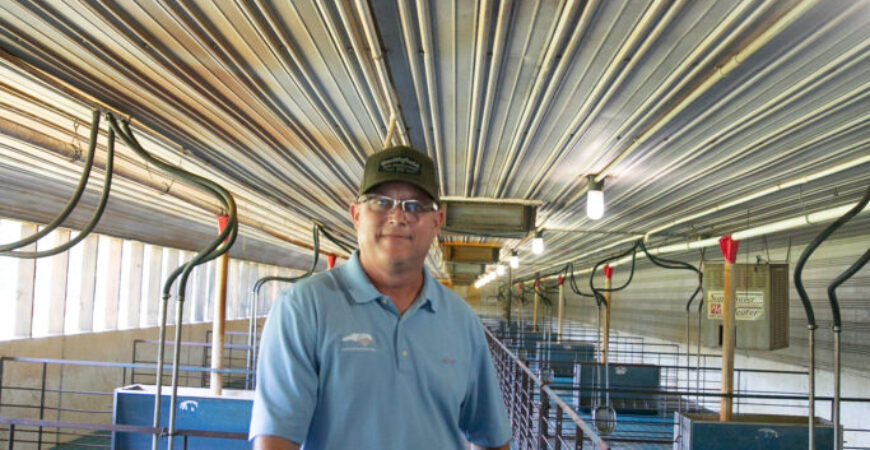MOUNT OLIVE — Agricultural roots run deep for NC Farm Families executive director, Chad Herring.
The third-generation pig farmer who raises newly-weaned pigs on his family farm in Mount Olive has been championing to educate people about the pig industry.
“My uncle got nine feeder pigs in 1965 on a 4-H project and over the years we’ve grown into what is now about 15,000 nursery spaces,” Herring told Duplin Journal.
 For nearly a decade, Herring has been welcoming colleges and universities interested in educational opportunities and opening his doors to members of the media to see for themselves the day-to-day operations of a hog farm.
For nearly a decade, Herring has been welcoming colleges and universities interested in educational opportunities and opening his doors to members of the media to see for themselves the day-to-day operations of a hog farm.
Growing up on a farm, Herring learned about the trade from his dad.
“We were growing pigs and row crops at that time. I got to drive tractors and plow corn, pick corn and soybeans. That was my childhood, and it was wonderful. I wish my kids could have grown up during that time,” said Herring.
“The farm is kind of the nucleus of our family unit,” Herring told Duplin Journal, pointing at the different homes where his family members live. “We built the farm and then we moved in around it… My grandmother lived here, my uncle, uncle, aunt, my father, other aunt and we kind of surrounded the farm. That’s why it’s so important to me the sustainability of it. Because it is part of our family.”
Herring likes to lead by example. As a hog family farmer himself he has a vested interest in sustainability of the industry. He believes transparency and education are key so people who may not be very familiar with the industry can learn the facts and not become easy targets of misinformation.
“We want people to see who we are and see that we’re just like them. We’re volunteer firefighters, we’re tee ball coaches, whatever it may be,” said Herring.
“If we see something that the media does that’s not right, we want to respond to it. And that’s where NC Farm Families is at,” said Herring as he spoke about a recent article by the New York Times about Tropical Storm Debby.
“They had a picture of a lagoon from six years ago, and the flood water is up to it, and the banks, obviously, it wasn’t inundated, so the lagoon was doing its job. But they were talking about flooding issues and whatnot, and it just wasn’t so,” said Herring, explaining this was just one example of the type of misinformation that is out there.
“We’ve seen our farms perform, and we get ready for hurricanes like we are supposed to,” said Herring. “We’ve learned over the years how to prepare for them.”
“Continuous improvement is in a pig farmer’s DNA and nowhere is that more evident than the progress made in the industry’s environmental footprint over the past 50 years,” Herring told Duplin Journal, explaining that now it takes 78% less land, 41% less water, and about 35% less carbon emissions per pound of pork produced.
“One of the biggest, probably the biggest technological advances that we’ve been implementing is the renewable natural gas piece,” said Herring, adding that the state ranks third in the nation with the most potential to become a leader in renewable energy. “Especially in eastern North Carolina we’ve got a lot of opportunity with all the hog farms to build those digesters and capture that gas.”
Herring also explained how the use of renewable natural gas technology is helping hog farms reduce emissions and minimize odors.
“There is a 51% decrease in odor unit emissions due to covered anaerobic digesters, and a 90% decrease in methane emissions due to collection from digesters,” said Herring. “The DEQ in North Carolina stated in their study that 34% of the state’s gross greenhouse gas emissions were sequestered by agricultural lands, natural lands and forests, which is a testament to what we’re doing in agriculture, especially on our farms.”
Herring is happy with the life he and his family members have built in their family farm, which is a testament that responsible hog farming practices do not pose a health risk.
“I’ve raised my family here. If I knew there was an environmental concern or it was going to impact my family, we wouldn’t be here. My goal is to protect my family and that’s why I decided to raise my family here,” said Herring. “We play in these creeks behind our farm — it’s a great place.”
 Twitter
Twitter Facebook
Facebook Instagram
Instagram





